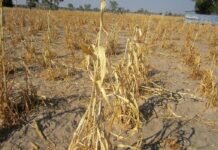
With an average growth rate of 6.7% between 2013 and 2017 – double the African average – East Africa is one of the fastest growing regions in the world, accompanied by rapid social improvements.
Average life expectancy has increased by 5.3 years over the past decade, with some countries registering historically unprecedented gains (e.g. 8.5 years in Kenya and Rwanda).
“There are of course still many challenges – chief amongst them being the need for faster job creation for the rapidly growing population – but on balance progress has been impressive. Life expectancy is a good general indicator of living standards, and the pace of change is one of the fastest in history”, said Andrew Mold, the Acting Director of the ECA in Eastern Africa, presenting an overview of economic and social developments in the region at the 22nd meeting of the Intergovernmental Committee of Experts, ICE.
The three-day meeting takes place in Kigali, Rwanda, and gathers more than 250 economic stakeholders and decision makers of 14 countries in East Africa.
In 2019, the region is expected to grow at 6.2%, thanks to sustained public and private investment, renewed optimisim in the Horn of Africa, and the opening up of new trade opportunities under the AfCFTA.
Minister of Finance and Economic Planning of Rwanda, Dr. Uzziel Ndagijimana noted that “ In many aspects, the Eastern Africa region has been leading continental trends – be it in terms of economic progress but also social – with life expectancy and other indicators improving a lot over the last decade.“
Amongst the challenges are the impact of climate change on agricultural production, rising levels of debt in some countries, and peace and security concerns. Outside the continent, the spectre of trade wars and moderating global demand could also impact on regional growth. At such a time, ECA argues that African countries should focus their attention on the more resilient and dynamic regional trading relations .
Participants of the ICE meeting will discuss how to strengthen regional integration through the implementation of the African Continental Free Trade Agreement, AfCFTA.













































